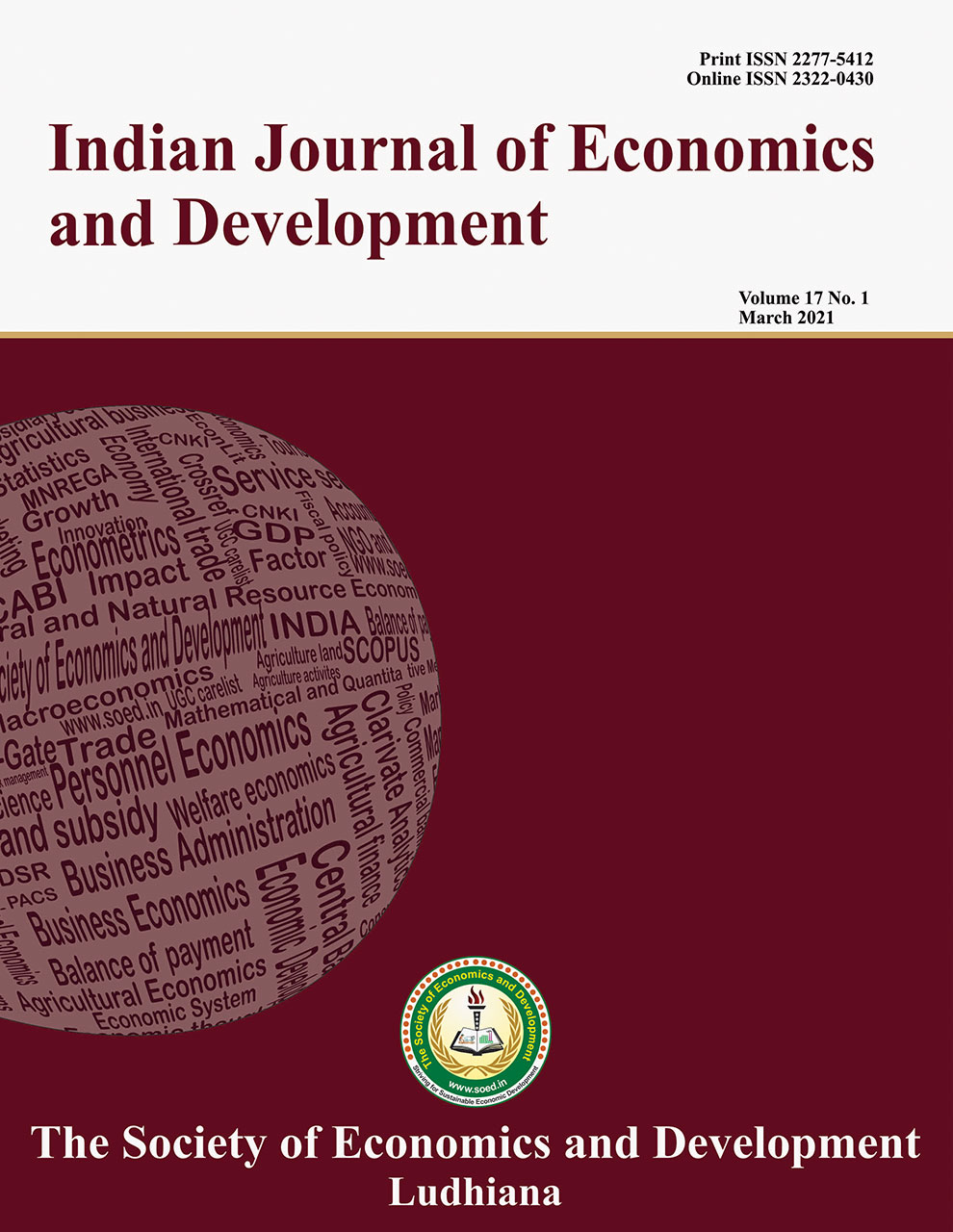Asymmetric Effects of Fiscal Deficit on Inflation: Evidence from India

Price: ₹ 500
Author: Shah Husain and Mohammad Asif
Author Address: Department of Economics, Aligarh Muslim University Aligarh-202002 (Uttar Pradesh)
Keywords: Asymmetries, co-integration, fiscal deficit, inflation, NARDL
JEL Codes: Asymmetries, co-integration, fiscal deficit, inflation, NARDL
Abstract
This study examined the asymmetric effect of
fiscal deficit, money supply, and exchange rate on inflation over 1991-2016.
The study employed the Non-Linear Autoregressive Distributive Lag Model (NARDL)
to achieve the objectives. The results provided evidence in favour of the
asymmetric effect. Further, the results showed the positive and negative
changes in fiscal deficit on inflation differently. The results also
highlighted that the money supply created an inflationary situation more than
the fiscal deficit, whereas the exchange rate promoted inflation. So, the
policy maker should be much bothered about money supply rather than a fiscal
deficit as it has a relatively more positive effect on inflation, it could be
an important policy implication of the study.
Description
Indian Journal of Economics and Development
Volume 17 No. 4, 2021, 948-953
DOI: https://doi.org/10.35716/IJED/21002
NAAS Score: 5.15
Indexed in Clarivate Analytics (ESCI) of WoS
Indexed in Scopus
UGC Approved



